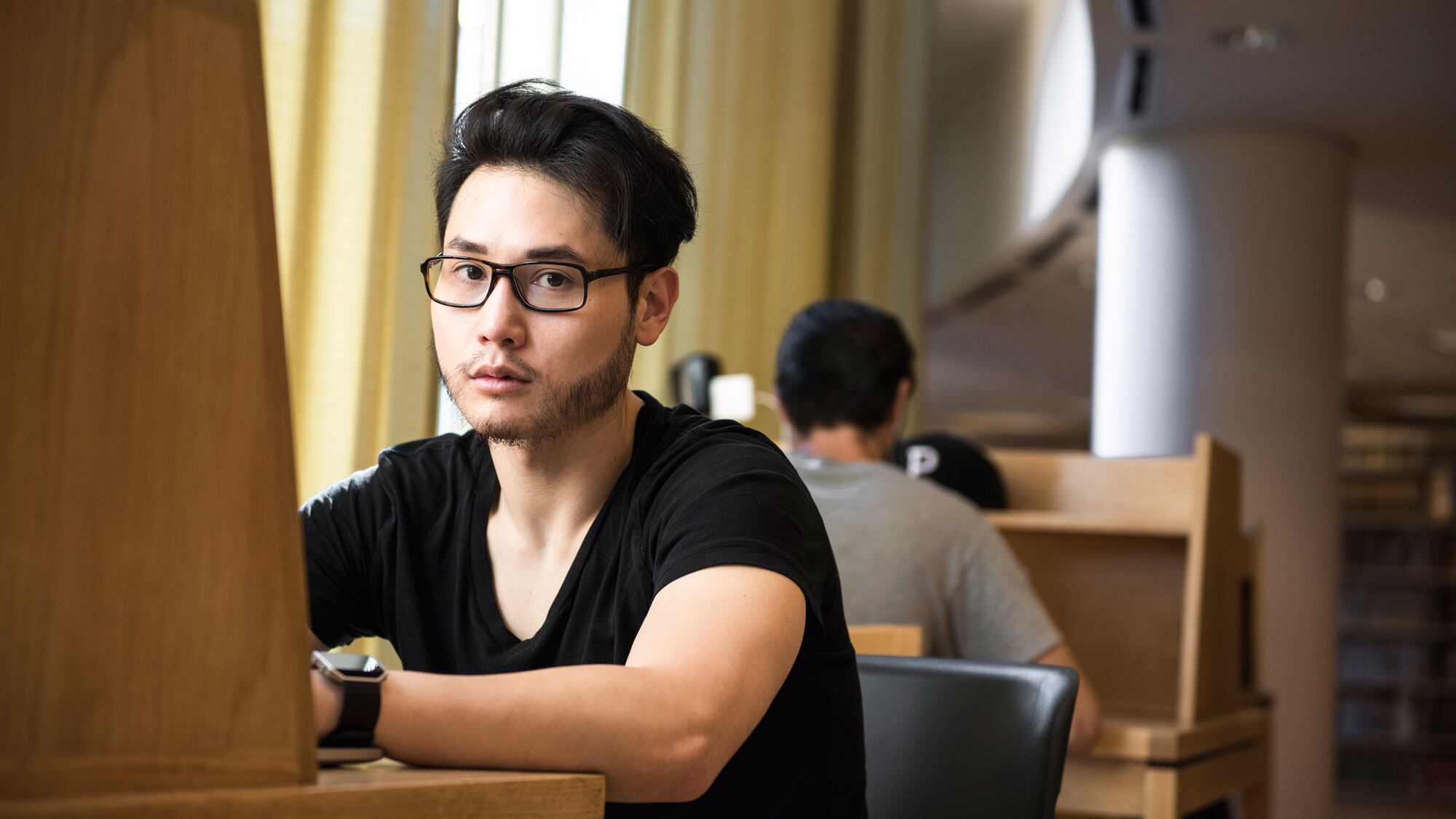A Portland State University journalist was fired from the Vanguard student newspaper last month for his characterization of a Muslim student's remarks at an April 26 campus panel discussion.
His dismissal has drawn national attention from conservative media, which see it as an example of left-wing campuses muzzling free speech.
But his firing also illustrates the challenges of producing ethical journalism in a social-media age—when a local story can turn global with provocative phrasing and a few retweets.
Andy Ngo wasn't reporting for the Vanguard when he attended the panel. What he did was paraphrase a portion of a Muslim student's comments about the treatment of non-Muslims in Islamic countries via his personal Twitter account.
Ngo's tweet went viral and caught the attention of the right-wing Breitbart News Network.
"Muslim student claims that non-believers will be killed in Islamic countries," the Breitbart headline read.
Four days after the panel discussion, Ngo was fired. (The school awarded him $1,900 per term for his work as multimedia editor—money he gets to keep.)
Ngo, 30, a lifelong Portlander and grad student in political science, says his crime was political incorrectness, not just what he tweeted. "Some of my past writing has been controversial on campus because of the subjects I've covered," he says.
Those topics included profiles of ex-Muslims and pro-Trump students of color on campus. "I don't know if that played a factor in influencing the decision making of those who fired me, but it's something I think about," he says.
His former boss disagrees.
"This is not partisan," says Colleen Leary, the Vanguard editor-in-chief who fired Ngo in person. "We aren't a left-leaning paper, and we aren't afraid to publish complex topics."
Leary says she dismissed Ngo because his tweet summarized the panelist's remarks in a way that was unethical.
"The tweet was a half-truth," Leary says. "It incited a reaction and implicated the student panelist."

Debates about free speech on campus have intensified since President Donald Trump's election. The disagreement at PSU showcases those heightened tensions.
The panel Ngo covered was called "Unpacking Misconceptions" and included discussion among six student panelists from different religions.
In a video of the event, the panelist says: "I can confidently tell you, when the Quran says an innocent life, it means an innocent life, regardless of the faith, the race, like, whatever you can think about as a characteristic. […] This that you're referring to, killing non-Muslims, that is only considered a crime when the country's law, the country is based on Quranic law—that means there is no other law than the Quran. In that case, you're given the liberty to leave the country, I'm not going to sugarcoat it."
Ngo tweeted: "At @Portland_State interfaith panel today, the Muslim student speaker said that apostates will be killed or banished in an Islamic state," Ngo wrote.
In Leary's view, Ngo's tweet removed the conditional, hypothetical nature of the student's comments and replaced it with more categorical and violent language. She says that while Ngo's comment was made on his personal Twitter account, it was still a reckless oversimplification and violation of journalistic ethics.
Breitbart reported on the contents of Ngo's Twitter feed within 24 hours. Other sites soon followed.
Leary says Breitbart's coverage brought Ngo's tweet to her attention but wasn't the reason for his firing. Ngo was let go, she says, because his tweet was exaggerated and inflammatory.
But Leary does wonder about the speed with which Ngo's tweet got to Breitbart. "It was reasonable to ask about Breitbart collusion because he has [worked with the network] before," she says. A year ago, while Ngo was a Vanguard reporter, Breitbart approached him to do a story on Trump supporters at PSU.
"Breitbart is not ethical, they don't fact-check, and they cite unattributed work," Leary explains.

Ngo went public with his claim of political censorship in a May 12 opinion piece he wrote for National Review titled "Fired for Reporting the Truth."
On May 19, Ngo hosted an "Ask Me Anything" session on the Reddit page called "the_donald" and a day later appeared in a YouTube interview with the Clarion Project, an organization that challenges Islamic extremism. (Leary says that reactions at PSU are few and mild in comparison to the national coverage that Ngo's story is attracting.)
Lost in the uproar? The Muslim student whose comments are at the center of the debate.
He could not be reached by WW for comment. But in a response to a story published in the Vanguard, which did not name him for safety reasons, the student says, "I thought I would feel proud after putting something like this [panel] together. Not feel like this."
Clarification, May 24: Andy Ngo says he did not contact Breitbart News Network about his tweet last month, and he had declined a previous offer to write for Breitbart.

